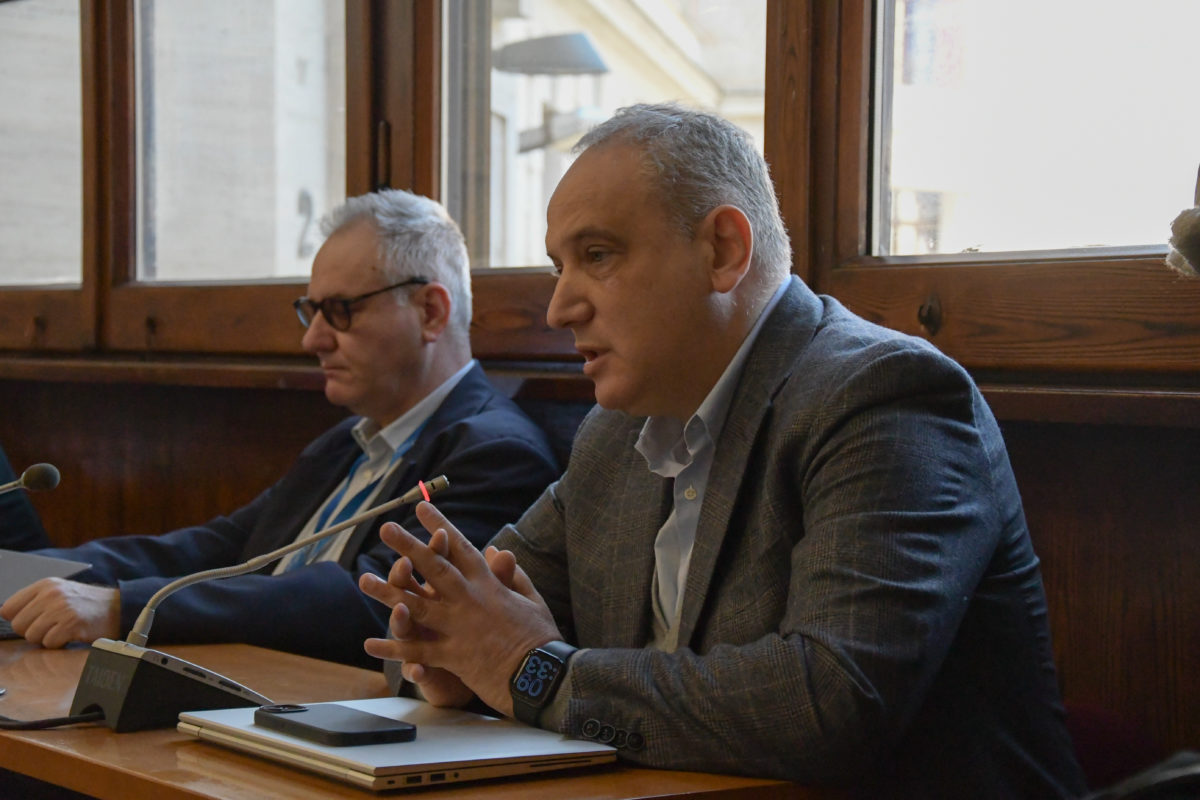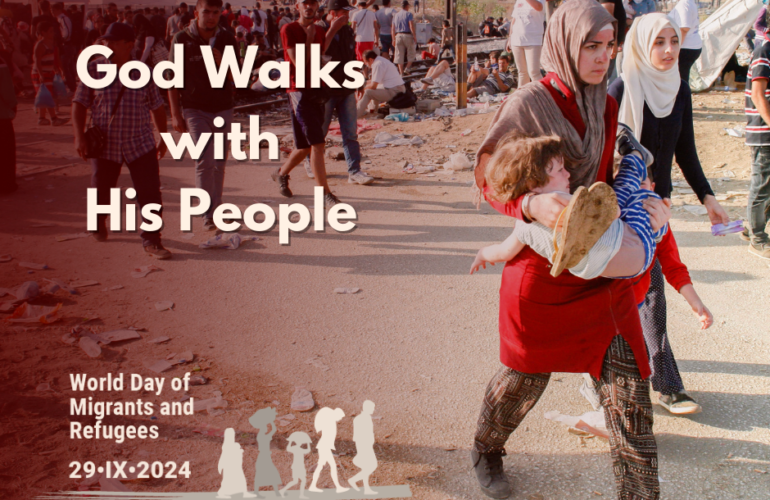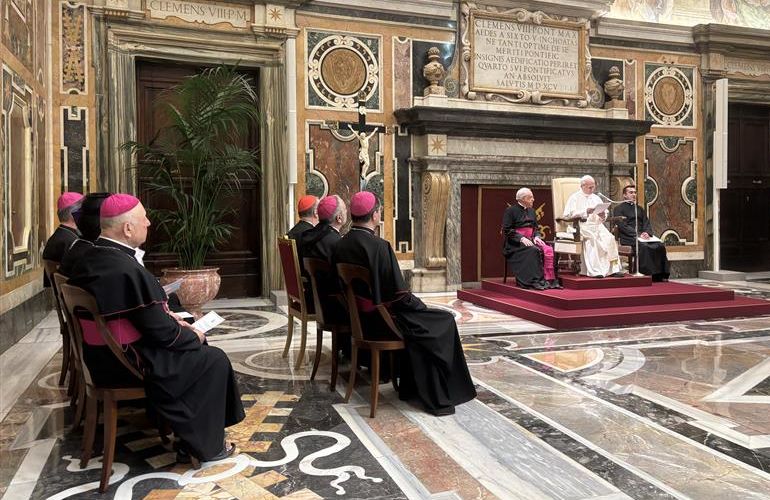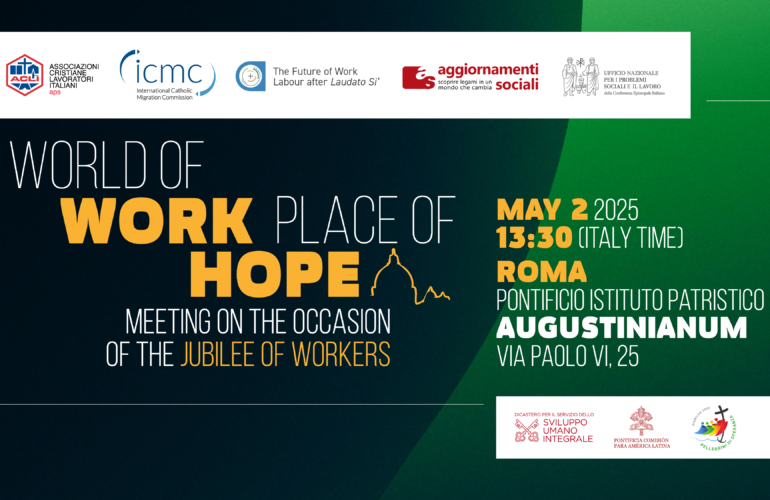The Paradigm of Human Fraternity
Today, with “the multiplication of conflicts, disruptions caused by climate change, and other natural disasters, as well as large-scale economic and social problems, prompting more and more people to leave their homelands to seek a future elsewhere, the Church is called to be even more involved with those who suffer. It is already a major global force in the service of welcoming, protecting, and integrating migrants and refugees, regardless of religion.

Thus, in a conversation with “L’Osservatore Romano,” Davide Bernocchi, a former member of Caritas and, since June, Secretary General of the International Catholic Migration Commission (ICMC), gave his first public interview since his appointment.
The data are impressive, he explained, speaking on the occasion of the 110th World Day of Migrants and Refugees, celebrated on Sunday, September 29, because “of a total of about 280 million migrants, more than 117 million are people literally forced to move, either within their country of origin or abroad, among them as many as 47 million children.”
Furthermore, in a global context that thrives on polarization “there is an inexorable process of erosion of the cornerstones of international law, so that even human rights lose their force: many live in fear, and people and societies tend to focus on themselves, perceiving their neighbors as a threat to their well-being. And many take advantage of these phenomena to sow hatred.”
ICMC was established in 1951 by Pope Pius XII, to help those who, after World War II, were moving from Europe to the Americas. Today, in collaboration with the Vatican’s Dicastery for Promoting Integral Human Development and the Permanent Mission of the Holy See in Geneva, ICMC operates at different levels: direct assistance, advocacy, and support for the various Catholic Bishops’ Conferences in the world. With this in mind, ICMC now wants to add an aspect imposed by modern times, namely “the commitment to countering false information that portrays migration as a threat. We want to provide objective data and opportunities to rediscover the humanity of the other, remembering that the paradigm to follow is that of human fraternity, promoted by Pope Francis. Christians love their neighbor because they believe in the Gospel.”
In mid-July 2024, Frontex reported a 30% decrease in irregular migration on the Mediterranean route in 2024, but a 150% increase in that via land routes in Eastern Europe. 3,155 people died in the Mediterranean in 2023, according to the International Organization for Migration.
“But displacement,” Bernocchi stresses,” take place all over the world. We cannot forget the Atlantic route to the Canary Islands; the Balkan route; the route from the Horn of Africa towards South Africa; the Southeast Asian route to Thailand, Singapore, and Indonesia; and finally, the very famous South-North route of the American continent. It must be said that the more walls and obstacles are put up and as long as crises escalate, the more those who are desperate are driven to adopt risky strategies that put their safety in danger. In America, for example, the large numbers who venture into the jungles and swamps of the Darién region between Colombia and Panama represent a worrying development.”
Another issue is that of “economic migration, which must be governed by incentivizing the possibilities of regular access for labor reasons. In addition, regarding asylum seekers, it should be remembered that the right of refugees to protection is one of the pillars of the modern concept of civilization, and one of the principles on which the identity of post-conflict Europe is based. The 2018 UN Global Compacts on Migration and Refugees are useful tools that should not be neglected.”
The European Union itself has often been blamed for failing to manage the migration issue. “In 2024 Brussels launched the new ‘Pact on Migration and Asylum,’ which is an attempt to establish common rules and overcome the isolation faced by the members States that are more geographically exposed. The Pact has been criticized by much of civil society, and even the Commission of the Bishops’ Conferences of the European Union (COMECE) has expressed concerns.”
Despite this, in addition to ICMC collaboration with the United States and European Union on resettlement, there are many positive experiences of cooperation in which Christian organizations “make a difference”. These include, for example, the Humanitarian Corridors on which Sant’Egidio, Caritas, and others work; or the Atlantic Hospitality Project established via a partnership of African and Spanish dioceses.
“As ICMC we would like to turn the perspective upside down,” Bernocchi concludes, “trying to accept the Pope’s surprising invitation: to thank the migrant who gives us the opportunity for an encounter, offering us the possibility of overcoming our fears and welcome and assist Jesus in person. He who welcomes the other, works for peace.”
By Roberto Paglialonga
This article was first published in L’Osservatore Romano, on 28 September 2024. Click here to read the article in Italian.



